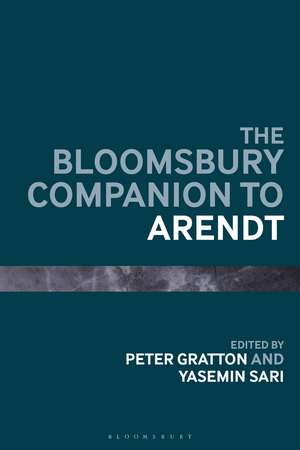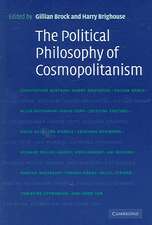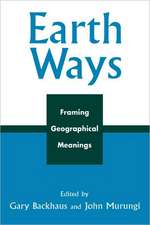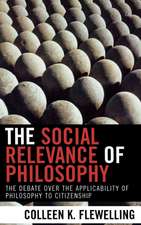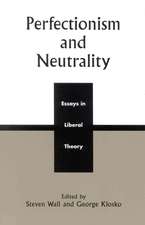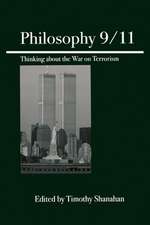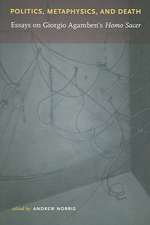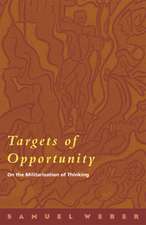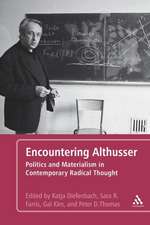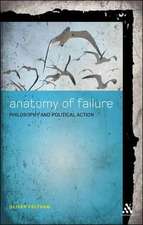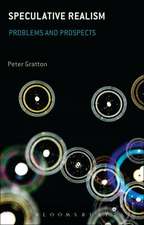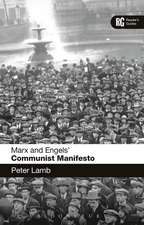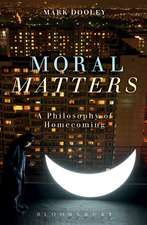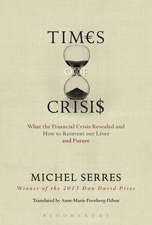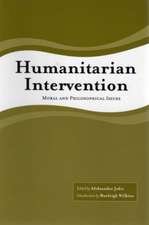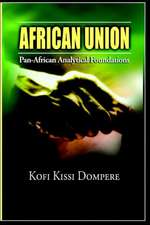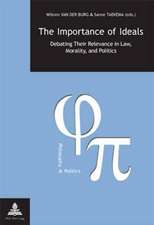The Bloomsbury Companion to Arendt: Bloomsbury Companions
Editat de Dr Peter Gratton, Yasemin Sarien Limba Engleză Hardback – 30 sep 2020
Din seria Bloomsbury Companions
- 43%
 Preț: 943.24 lei
Preț: 943.24 lei - 16%
 Preț: 258.54 lei
Preț: 258.54 lei - 21%
 Preț: 256.42 lei
Preț: 256.42 lei - 48%
 Preț: 626.47 lei
Preț: 626.47 lei -
 Preț: 822.27 lei
Preț: 822.27 lei - 17%
 Preț: 256.89 lei
Preț: 256.89 lei - 17%
 Preț: 257.81 lei
Preț: 257.81 lei - 44%
 Preț: 941.35 lei
Preț: 941.35 lei - 41%
 Preț: 226.40 lei
Preț: 226.40 lei -
 Preț: 771.53 lei
Preț: 771.53 lei - 12%
 Preț: 266.68 lei
Preț: 266.68 lei - 44%
 Preț: 940.38 lei
Preț: 940.38 lei - 17%
 Preț: 253.85 lei
Preț: 253.85 lei - 44%
 Preț: 937.45 lei
Preț: 937.45 lei - 45%
 Preț: 141.20 lei
Preț: 141.20 lei - 17%
 Preț: 254.58 lei
Preț: 254.58 lei - 27%
 Preț: 383.62 lei
Preț: 383.62 lei - 44%
 Preț: 938.96 lei
Preț: 938.96 lei - 7%
 Preț: 304.89 lei
Preț: 304.89 lei - 17%
 Preț: 239.59 lei
Preț: 239.59 lei - 12%
 Preț: 257.36 lei
Preț: 257.36 lei - 12%
 Preț: 255.97 lei
Preț: 255.97 lei - 17%
 Preț: 253.67 lei
Preț: 253.67 lei - 12%
 Preț: 264.39 lei
Preț: 264.39 lei - 16%
 Preț: 258.28 lei
Preț: 258.28 lei - 44%
 Preț: 937.06 lei
Preț: 937.06 lei - 41%
 Preț: 225.08 lei
Preț: 225.08 lei - 12%
 Preț: 254.58 lei
Preț: 254.58 lei - 22%
 Preț: 252.76 lei
Preț: 252.76 lei - 17%
 Preț: 255.51 lei
Preț: 255.51 lei - 41%
 Preț: 193.99 lei
Preț: 193.99 lei - 36%
 Preț: 871.22 lei
Preț: 871.22 lei - 44%
 Preț: 938.96 lei
Preț: 938.96 lei - 17%
 Preț: 254.14 lei
Preț: 254.14 lei -
 Preț: 930.14 lei
Preț: 930.14 lei - 11%
 Preț: 267.60 lei
Preț: 267.60 lei - 36%
 Preț: 944.19 lei
Preț: 944.19 lei - 10%
 Preț: 271.74 lei
Preț: 271.74 lei - 26%
 Preț: 1161.10 lei
Preț: 1161.10 lei - 43%
 Preț: 220.26 lei
Preț: 220.26 lei - 12%
 Preț: 263.56 lei
Preț: 263.56 lei - 43%
 Preț: 925.87 lei
Preț: 925.87 lei -
 Preț: 270.06 lei
Preț: 270.06 lei
Preț: 781.86 lei
Preț vechi: 1373.74 lei
-43% Nou
Puncte Express: 1173
Preț estimativ în valută:
149.61€ • 159.98$ • 124.74£
149.61€ • 159.98$ • 124.74£
Carte tipărită la comandă
Livrare economică 18 aprilie-02 mai
Preluare comenzi: 021 569.72.76
Specificații
ISBN-13: 9781350053298
ISBN-10: 1350053295
Pagini: 688
Dimensiuni: 156 x 234 x 48 mm
Greutate: 1.13 kg
Editura: Bloomsbury Publishing
Colecția Bloomsbury Academic
Seria Bloomsbury Companions
Locul publicării:London, United Kingdom
ISBN-10: 1350053295
Pagini: 688
Dimensiuni: 156 x 234 x 48 mm
Greutate: 1.13 kg
Editura: Bloomsbury Publishing
Colecția Bloomsbury Academic
Seria Bloomsbury Companions
Locul publicării:London, United Kingdom
Caracteristici
The collection covers the breadth of her work as a political theorist and philosopher, on the nature of power and the subjects of politics, direct democracy, authority, and totalitarianism
Notă biografică
Peter Gratton is Professor of Philosophy at Memorial University of Newfoundland, Canada. He is author of Speculative Realism: Problems and Prospects (Bloomsbury, 2014)asemin Sari is Assistant Professor of Philosophy at the University of Northern Iowa, USA.
Cuprins
AcknowledgmentsNotes on contributorsEditor's Introduction, Peter Gratton and Yasemin Sari Part I: Sources, Influences, and Encounters1. Arendt and the Roman Tradition, Dean Hammer2. Concepts of love in Augustine, Charles Synder 3. Thomas Hobbes: the emancipation of the political-economic, Peg Birmingham 4. Arendt, Montesquieu, and the spirits of politics, Lucy Cane5. Jean-Jacques Rousseau's sovereign intimacy, Peg Birmingham6. Arendt and Kant's moral philosophy, Robert Burch7. Arendt and Kant's categorical imperative, William Clohesy8. Hannah Arendt and Karl Marx: beyond the human condition, Tama Weisman 9. Max Weber: methodology, action, and politics, Philip Walsh 10. Phenomenology: Arendt's politics of appearance, Peter Gratton11. Martin Heidegger: love and the world, Jennifer Gaffney12. Karl Jaspers, Arendt, and the love of citizens, Ian Storey13. Isaiah berlin: liberty, liberalism, and anti-totalitarianism, Kei Hiruta 14. Arendt and America, Richard H. King15. Franz Kafka and Arendt: pariahs in thought, Ian Storey16. Walter Benjamin and Arendt: a relation of sorts, Andrew Benjamin17. Merleau-Ponty: hiding, showing, being, Kascha Semonovitch18. Arendt and critical theory: impossible friends, Rick Elmore19. Arendt and the New York intellectuals, Richard H. KingPart II: Key Writings20. Love and st. Augustine, Charles Snyder21. Rahel Varnhagen, Samir Gandesha22. The origins of totalitarianism, Richard Bernstein23. The human condition, Peter Gratton24. Eichmann in Jerusalem, Leora Bilsky 25. Between past and future, Emily Zakin26. On revolution, Robert Fine 27. Lectures on Kant's political philosophy, Matthew wester28. The life of the mind, Robert Burch Part III: themes and topicsOntology29. Arendt and appearance, Jeremy Elkins30. Arendt on the activity of thinking, Wout Cornelissen31. Judaism in the human condition, Bonnie Honig32. Life and human plurality, Dianna Taylor33. Natality and the birth of politics, Anne O'Byrne34. Place: the familiar table and chair, Peter f. Cannavò35. Plurality, Catherine Kellogg36. The right to have rights, Yasemin Sari37. Truth, Ronald Beiner38. Two-in-one, Robert BurchPolitics39. Artificial equality: procedural, epistemic, and performative, Yasemin Sari40. Arendt and Ecological politics, Kerry H. Whiteside41. Evil, James Bernauer42. Freedom, Catherine Kellogg43. Imperialism, Jennifer Gaffney44. International law: its promise and limits, Natasha Saunders45. Justice: Arendt in jerusalem and the problem of judgment, Vincent Lefebve46. Law: nomos and lex, constitutionalism and totalitarianism in Arendt's thought, Vincent Lefebve47. On the lost spirit of revolution, Samantha Rose Hill48. Power, Patrick Hayden49. Radical democracy within limits, Andrew Schaap50. Reconciliation, Roger Berkowitz51. Responsibility, Phillip Nelson52. The sensus communis and common sense: the worldly, affective sense of judging spectators, Peg Birmingham53. Sovereignty, Christian Volk54. Violence: illuminating its political meaning and limits, Masa MrovljeSociety55. Arendt's alteration of tone, Susannah Gottlieb56. Art and performance, Cecilia Sjöholm57. Biopolitics: racing and "managing" human populations, Dianna Taylor 58. The "conscious pariah": beyond identity and difference, Samir Gandesha59. Education: Arendt against the politicization of the university, Peter Baehr60. Expropriation: the loss of land as place in the world, James Barry, Jr61. Arendt and Feminism, Julian Honkasalo62. Labor: the liberation and the rise of the life society, James Barry, Jr63. Narrative, Adriana Caverero64. Political philosophy of science: from cosmos to power, Eve Seguin65. Arendt on Race and Racism, Grayson Hunt66. The stateless: the logic of the camp, Samir Gandesha67. World alienation and the search for home in Arendt's philosophy, David Macauley Index
Recenzii
This volume explores many of the "thought trains" central to Arendt's understanding of modernity. Essays on dozens of topics invite readers to think about politics, birth, truth, and power in light of Arendt's profound reflections on those topics. While Arendt found "truth" elusive, she thought we were obliged to "think about what we are doing", the authors of these essays help us to shoulder that task.
Diverse, accessible, and highly impressive in its scope, this compelling volume will doubtless become essential reading both for established scholars of Arendt's work and for new readers. Effectively showcasing the urgency and vitality of Arendt's writings, it strikes the perfect balance between enriching current conversations and presenting new directions for Arendt scholarship.
Diverse, accessible, and highly impressive in its scope, this compelling volume will doubtless become essential reading both for established scholars of Arendt's work and for new readers. Effectively showcasing the urgency and vitality of Arendt's writings, it strikes the perfect balance between enriching current conversations and presenting new directions for Arendt scholarship.
